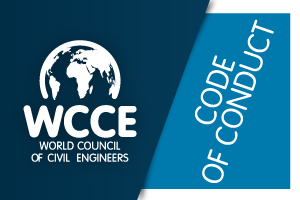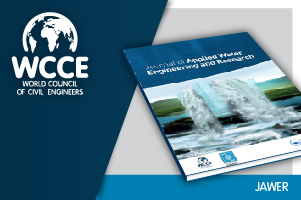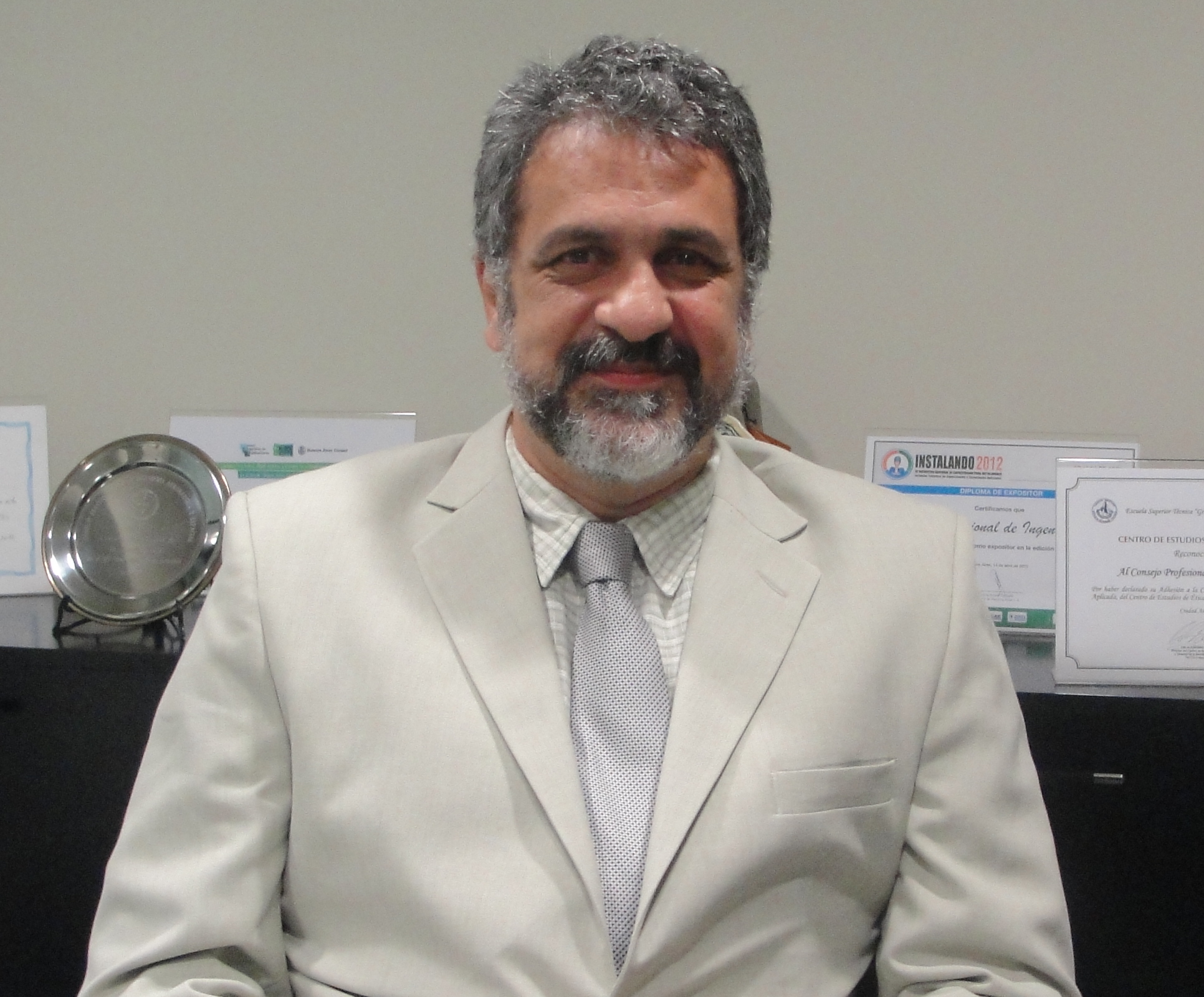Jorge Abramian, WCCE President Elect
A previous research about the civil engineering profession sparked the interest to investigate how different countries define this practice. The mentioned research related to the number of civil engineers available in different countries, and showed a correlation with population, being the average of the 38 sampled countries close to 1.050 civil engineers per million inhabitants.
However, the data scattered and its standard deviation was somewhat large. Interestingly, some of the respondents pointed out that in their countries the definition of civil engineers was generally broader than in the rest of the world – those countries were not taken into account in the mentioned investigation as would bias the results.
In these cases, they explained, civil engineering was understood as the opposite of, for example, military engineering. Hence, civil engineering was an umbrella that covered construction, mechanical, chemical, transportation engineering and others as specializations of civil engineering.
This comments triggered the question: how are we defining what a civil engineer is? To answer the above stated question, WCCE conducted a survey responded by representatives of 25 countries. To design the survey the mind was set in the actions that a civil engineer is legally able to do.
Countries participating in the survey
| Country | Structures, transportation, soil mechanics, hydraulic systems |
Topographic surveys | Water supply & Sanitation | Power lines, pipelines , etc. |
Remarks |
|
Argentina |
● |
● |
● |
Topography depending on jurisdiction, power lines and others restricted to buildings |
|
|
Australia |
● |
● |
|||
|
Austria |
● |
● |
● |
● |
|
|
Bolivia |
● |
● |
|||
|
Botswana |
● |
● |
|||
|
Brazil |
● |
● |
● |
● |
|
|
Chile |
● |
● |
● |
● |
Electrical, mechanical, industrial, etc. are considered specialties of Civil engineering, but hold different degrees and scopes of competence. |
|
Congo |
● |
● |
● |
● |
The concept of civil engineering is broader and may include, as specialties, mechanical, electrical, etc. |
|
Costa Rica |
● |
● |
● |
● |
|
|
Cyprus |
● |
● |
● |
||
|
Egypt |
● |
● |
● |
||
|
Honduras |
● |
● |
● |
||
|
Kenya |
● |
● |
|||
|
Mexico |
● |
● |
● |
● |
|
|
Montenegro |
● |
● |
● |
● |
The concept of civil engineering is broader and may include, as specialties, mechanical, electrical, etc. |
|
Nigeria |
● |
● |
|||
|
Peru |
● |
● |
● |
● |
Electrical, mechanical, industrial, etc. are considered specialties of Civil engineering, but hold different degrees and areas of development |
|
Portugal |
● |
● |
● |
There are many specialties, but usually engineers work up to two areas of expertise |
|
|
Puerto Rico |
● |
● |
Civil engineering encompasses all disciplines, but practice should be limited to area of expertise |
||
|
Rwanda |
● |
● |
● |
||
|
South Africa |
● |
● |
● |
● |
|
|
Spain |
● |
● |
● |
● |
|
|
Uganda |
● |
● |
● |
||
|
USA |
● |
● |
Civil eng. encompasses all disciplines, but practice is limited to area of expertise |
||
|
Zimbabwe |
● |
● |
● |
Results
The survey only comprised four questions, the first of which was the country name of the respondent and the last one was a text box for additional, optional comments. The main questions were aimed to understand what the field of action of the civil engineer is, as regulated by the authorities. Here are the results:
- In 100% of the surveyed countries, civil engineers can design and build structures, highways, railways, ports, transportation systems, dams, channels, irrigation systems and other hydraulics systems. Only in a few countries they cannot perform soil mechanics studies and foundation designs (reserved to geologists or mine engineers).
- In 96% of the cases, civil engineers are allowed to design and build sanitary facilities like landfills, treatment plants, sewage, etc.
- In 72% of the countries, civil engineers can perform topographic and hydrographic surveys.
- In 44% of the countries, civil engineers can work in electrical systems, pipelines, firefighting facilities, and others.
- Only in 12% of the cases, civil engineers would cover broader areas of actions. In some cases, they would access these broader areas through specific academic degrees, independently of the civil engineering program. For instance, they may be called “Mechanical Civil Engineer” after following an academic program specifically oriented to mechanical engineering.
In the case of topographic surveys, in some countries, like Argentina and Bolivia, the situation is evolving. Time ago, the capacity of civil engineers to perform such works and sign legal survey documents or drawings was undeniable. However, in the present, surveyors fight for their reconnaissance as the only professionals able to undertake such responsibilities. Many countries feature completely separated licensing processes for civil engineers and surveyors.
In most countries, civil engineers can design and build housing or architectural constructions and they would be able, too, to design and install the ancillary services, like the electrical wiring distribution or the water piping but, for example, they are not allowed to design power plants or power lines (except for the supporting structures). However, in some countries, the ancillary services must be designed and installed by mechanical or electrical engineers.
One question that was not added to the survey is related to territorial planning or urban planning. Some of the comments pointed out that absence. An interesting field usually recognized as a civil engineering area of development that is also shared with architects and geographers.
Preliminary Conclusions
Given these clarifications, the survey results show that there is a pretty good agreement on the definition of what a civil engineer is and can do. However, some comments included in the answers highlighted a few aspects that are worthwhile to mention. Civil engineers cover a vast field of action that could remind the license of James Bond. The latter had the license to kill; civil engineers have the license to do almost everything related to construction and associated disciplines. Many answers pointed out that even when a civil engineer has a background and theoretical knowledge to serve in a variety of specialties, the license is subject to an ethical constrain: one must be in charge of projects within his own area of expertise. This means that even though you can choose from a number of subspecialties, you are still bounded to restrict your practice to those for which you have taken interest and experience.
While this latter is true, it is also true that an ample field of action is desirable when civil engineers start their careers. Moreover, as civil engineers are particularly vulnerable to economic downturns, government budget cuts, and the end of construction jobs, a wider potential area of practice could help overcome economic difficulties: an engineer could later take interest in a different area of expertise within the civil engineering and change his scope. In the end, to have an ample field of action benefits the professionals and makes them more flexible to adapt to changing situations.
One additional thought could be added to the former ones related to the tendency to open schools that offer undergraduate degrees based on traditional civil engineering areas of expertise. For example, there are schools that offer degrees in transportation engineering, independently of the civil engineering core program. Traditionally, a civil engineer will specialize in transportation engineering choosing this major in the undergraduate school and acquiring additional knowledge by practice or by pursuing graduate degrees. May be, to enlighten this discussion another survey should be conducted.
Hopefully, WCCE will keep preparing databases that allow our members to build a common language to help resolve issues like professional mobility, continuing education, and international cooperation.









